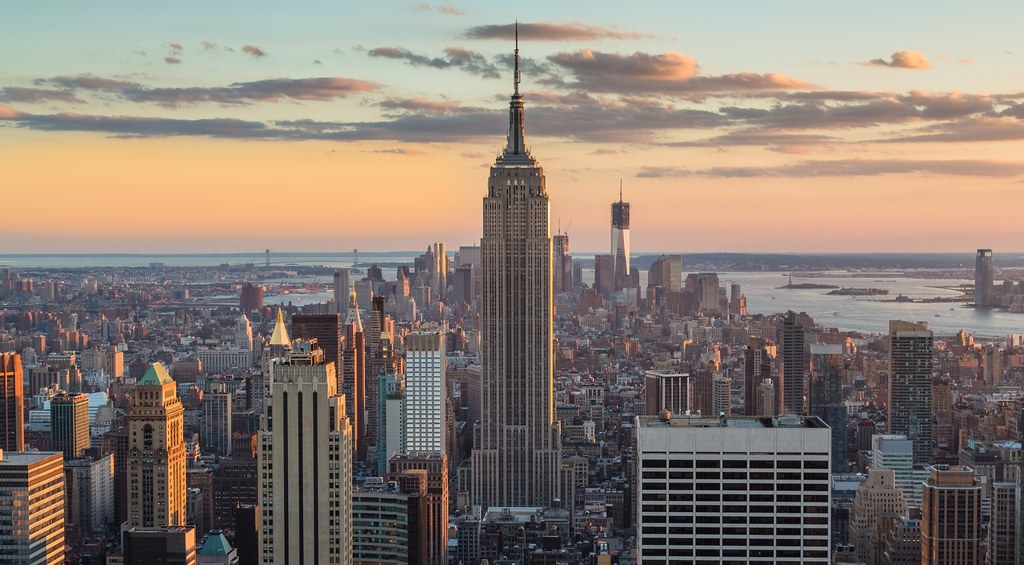New York City voters will decide five charter amendments in November 2025—four related to housing and infrastructure, and one to move city elections from odd to even-numbered years. However, that last change would also require a state constitutional amendment.
On July 21, the New York City Charter Revision Commission, a temporary 13-member commission formed by Mayor Eric Adams (D) to review the city charter and propose amendments, voted to place these five measures before voters in November.
The five measures are below:
- Question 1: Would create two new public processes for publicly financed affordable housing. One would provide for the City Planning Commission the authority to approve or reject housing projects, enabling publicly financed affordable housing to be approved by the Board of Standards and Appeals after review by the affected Community Board. The other would expedite the land use review process for zoning changes that deliver affordable housing in the 12 community districts with the lowest rate of affordable housing production.
- Question 2: Would create an Expedited Land Use Review Procedure (ELURP) for certain land use changes and projects related to housing.
- Question 3: Would create an Affordable Housing Appeals Board, consisting of the Borough President, Speaker of the City Council, and Mayor, which would have the power to review and reverse decisions by the city council that reject or modify land-use applications that directly facilitate the creation of affordable housing.
- Question 4: Would require the city to consolidate and digitize the City Map, and replace the existing paper City Map. Currently, the City Map comprises five distinct sets of maps, one for each borough, totaling over 8,000 individual paper maps.
- Question 5: Would change city elections for mayor, public advocate, comptroller, borough president, and city council members from odd to even-numbered years.
Liz Garcia, a spokesperson for Mayor Adams, said, “These are smart proposals that have the potential to speed up affordable housing production, and we encourage New Yorkers to make their voices heard by flipping their ballots and weighing in on these proposals this November.”
However, a joint statement from the New York City Council read, “This commission’s misguided proposals would undermine the ability to deliver more affordable housing, homeownership opportunities, good-paying union jobs, and neighborhood investments for New Yorkers across the five boroughs.”
The fifth question pertains to changing the city elections from odd years to even years.
Richard Buery, Chair of the Charter Revision Commission, said, “Our turnout in presidential elections is more than double our turnout in mayoral elections. We think even-year elections is one straightforward way of making it easier for New Yorkers to have a chance to participate in our city elections.”
Diane Savino, who serves on the commission and works as an advisor to Mayor Adams, voted against this measure, saying, "I have serious concerns, as having been a down-ballot candidate, that in a presidential year, local candidates, who are the closest people to their community, will not get the type of attention in their election year, which will be drowned out by the top of the ticket. They buy up all the air time, they buy up all the campaign time. And if you are a local elected official, a council person running in the same year as the president, it’s very possible the drop-off from the top of the ticket to the bottom would do a serious disservice to local governments."
For Question 5 to take effect, a state constitutional amendment would also need to be approved by the voters. Article XIII, Section 8 of the New York Constitution requires that all city officials be elected in odd-numbered years. To change this, the state legislature must approve a constitutional amendment—by a simple majority vote in two consecutive legislative sessions—and place it on the statewide ballot for voter approval, in addition to the local charter amendment being approved by New York City voters. The earliest a constitutional amendment could appear on the ballot, due to the two-session requirement, is 2027.
One measure not making the ballot was an amendment that would have adopted top-two open primaries for city elections. The measure would have allowed for any registered voter, regardless of party affiliation, to participate in the city primary. It would also have provided that all candidates are listed on the same ballot, where the top two vote-getters advance to the general election, regardless of their partisan affiliations. The commission considered the proposal, but according to Buery, there was not enough consensus among the commissioners and city leaders to consider it.
New Yorkers will decide on the five charter amendments on Nov. 4, 2025.



